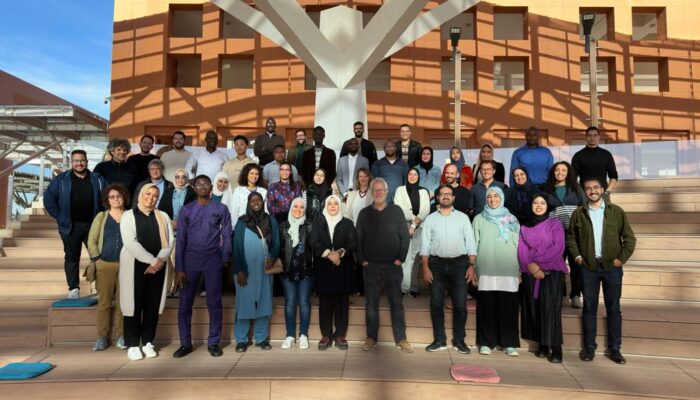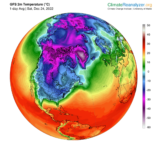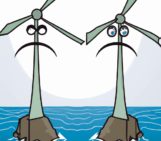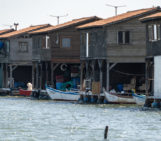
In the ever-evolving landscape of climate change, the Université Mohammed VI Polytechnique (Buengerir, Marocco) and Institut Pierre Simon Laplace (Paris,France) Summer School has emerged as a beacon of knowledge, equipping participants with the tools to comprehend, navigate, and mitigate the impacts of a changing climate. The inaugural edition of the summer school focused on “climate change, projections, and services,” delving into the intricate world of climate projections and the crucial role of information in supporting risk management and adaptation and has benefit from the interaction of European, American and African scientists. The urgency of addressing climate change is underscored by the increasing complexity and diversity of climate information. As climate models and observations strive to keep pace, the demand for detailed and tailored information from sector communities, decision-makers, and stakeholders is on the rise. The summer school recognizes the need to bridge this gap by co-constructing actionable knowledge and data on future climate risks. Climate services, a key focal point of the course, offer a bridge between scientific knowledge and practical decision-making. When carefully designed and effectively utilized, these services enhance the feasibility and efficacy of adaptation responses across various sectors, including agriculture, water management, energy efficiency, urban planning, and more.
Course Objectives and Activities
The summer school aimed to expose participants from several African countries and different background to state-of-the-art learning and activities, providing insights into the co-design and use of climate information and services. With a specific focus on climate projections, participants delve into topics such as climate models, emissions scenarios, downscaling methods, bias adjustment, model selection, and handling extreme events. These skills are deemed essential for climate change assessment, projections, vulnerability studies, and adaptation planning.
During the summer school, students engaged in hands-on learning and practical exercises, focusing on real-world climate events. Notably, students explored and communicated an attribution report for Medicane Daniel, a catastrophic storm that struck the Mediterranean in September 2023 focusing on the different studies proposed by World Weather Attribution, ClimaMeter and MedCyclones. I have taken care of compiling the insights collected by the participants from the different studies. Their synthesis is shown below:
-
- Title: When the Mediterranean Sea is Angry: The Deadliest Weather Events in Recent History.
- Key Insights: The report provided a comprehensive overview of Storm Daniel’s timeline, meteorological characteristics, and devastating impacts on human life, agriculture, livestock, and the economy. The storm, characterized as a “Medicane,” left a trail of destruction, with implications for long-term economic and societal well-being.
-
- Title: To what extent did climate change induce extreme events over Libya?
- Key Findings: The report highlighted the unprecedented impacts of Storm Daniel, attributing the extreme event to climate change. With a 10% increase in rainfall intensity expected given current warming levels, the report suggested that human-induced climate change made such an event up to 50 times more likely and 50% more intense compared to a 1.2°C cooler climate
-
- Title: Are we expecting more Daniel-like medicanes in the future?
- Key Insights: The analysis of Medicane Daniel indicated a unique event characterized by low surface pressure and heavy precipitation. While natural climate variability played a role, the report emphasized the challenges of attribution due to limited past data, calling for further research.
Conclusions
As the UM6P-IPSL-IP-Paris Summer School concludes its first edition, participants leave armed with not only theoretical knowledge but also practical skills to confront the challenges posed by climate change. The insights gained from the analysis of Medicane Daniel serve as a reminder of the real-world consequences of climate change and the importance of informed decision-making in building resilient societies. The journey towards climate resilience continues, and the summer school stands as a pivotal platform for shaping the leaders and practitioners of tomorrow in the battle against climate change, calling for the urgent need of educational programmes on climate change in Africa.



